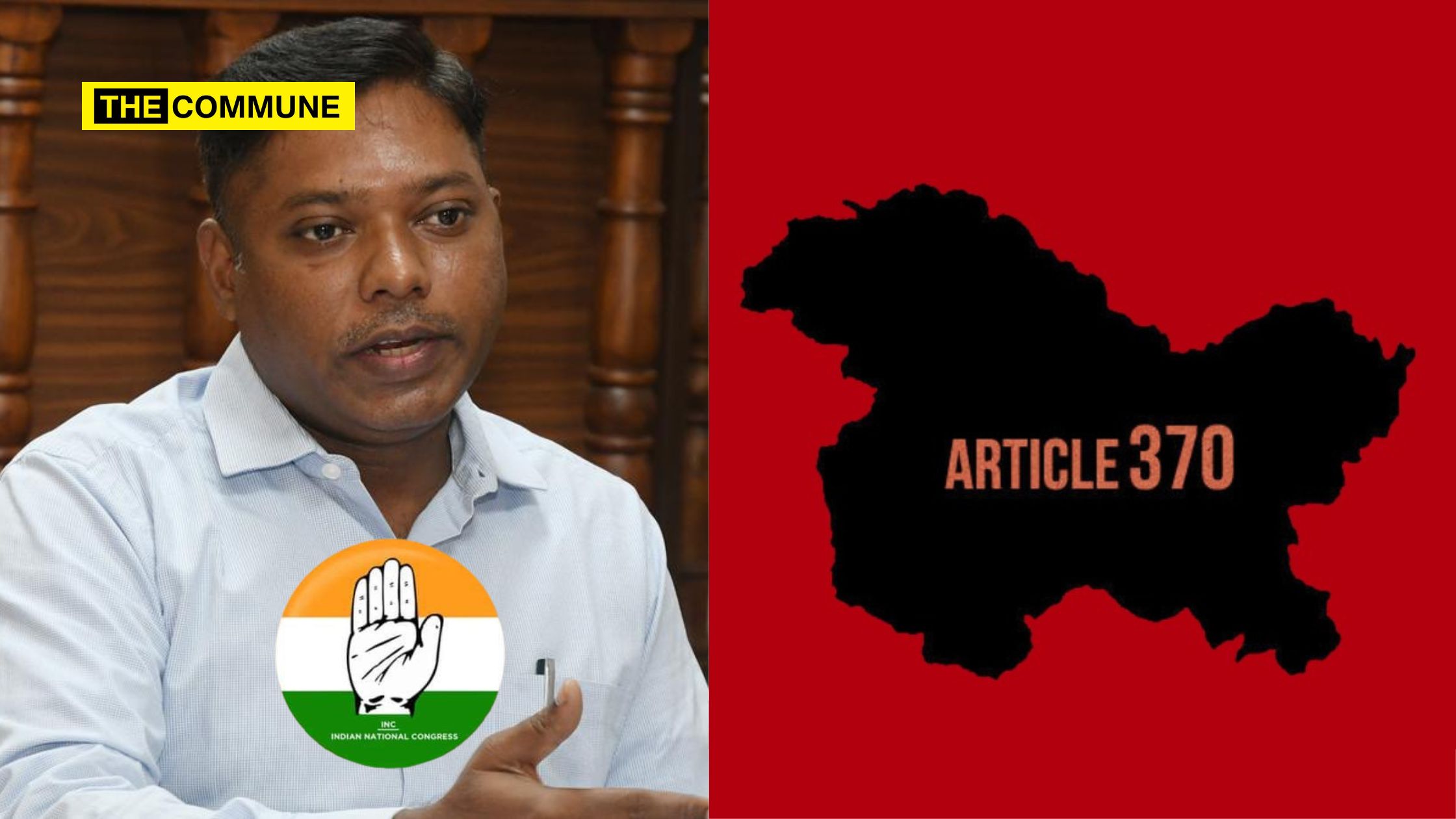
Tamil Nadu Congress MP Sasikanth Senthil has recently used his resignation from the IAS as a public relations stunt, claiming it was a protest against the Centre’s abrogation of Article 370, which led to the full integration of Kashmir with the rest of India. His statement comes against the Jammu & Kashmir Assembly elections scheduled from 18 September 2024 to 8 October 2024.
Senthil’s move to rekindle the debate on Kashmir seems largely ineffective, given that the issue has been resolved legislatively, administratively, and judicially. Even the Congress party, which once opposed the abrogation, has since adapted its stance to acknowledge the decision. The government announced the decision to abrogate Article 370 five years ago.
At a Congress-organized event titled ‘Conversation with Senthil’ in Mangalore, he explained the circumstances of his resignation. Senthil recounted when the central government revoked Kashmir’s special status under Article 370, he and his wife were watching the news together. His wife apparently questioned him about his revolutionary ideals from his college days and asked why, despite holding a government position with privileges like a bungalow and a vehicle, he seemed indifferent to national issues. Her question allegedly deeply affected Senthil, leading him to “reflect on his values and his role in government”.
This “self-reflection” apparently prompted him to resign the next day. Sasikanth Senthil emphasized that his decision to quit IAS was driven by his conscience and disapproval of politics undermining public institutions. He also noted that while the Congress Party did not approach him and that he chose to join it independently.
Who’s Sasikanth Senthil ?
Sasikanth Senthil, a 2009 batch IAS officer from Tamil Nadu, gained widespread attention when he resigned from his position as Deputy Commissioner of Dakshina Kannada in Karnataka. In his resignation letter, Senthil voiced grave concerns about the state of democracy in India, asserting that the “fundamental building blocks of democracy were being compromised in an unprecedented manner.”
His resignation was a direct response to the BJP-led government’s decision to abrogate Article 370 and transform Jammu and Kashmir into a Union Territory. Senthil described this move as the “culmination of his feelings” and criticized the government’s actions as fascist. His outspoken comments on these issues drew considerable backlash and harsh criticism.
BJP MP Anantkumar Hegde condemned Senthil’s actions, stating, “This is treachery. If an IAS officer questions a government that has been elected by the people and challenges a decision made by Parliament, it is a serious betrayal of the government. Authorities should act swiftly. What this man and his supporters should do is leave for Pakistan. Instead of dividing our country from within, it would be better for him to go there and confront our country and government directly.”
Congress Stance in Article 370
Despite the Supreme Court upholding the revocation of Jammu and Kashmir’s special status as constitutionally valid, Tamil Nadu MP Sasikanth Senthil is reigniting this old issue for media attention.
Congress’s Stance in 2019:
In August 2019, when the Narendra Modi government abrogated Article 370 and restructured Jammu and Kashmir into the Union Territories of J&K and Ladakh through the Jammu and Kashmir Reorganisation Act, the Congress party strongly opposed these moves. During a Congress Working Committee (CWC) meeting on 6 August 2019, the party criticized the government’s approach, arguing that Article 370 represented the constitutional terms of the Instrument of Accession from 1947. They contended that any changes should have been made only after thorough consultation and in strict adherence to the Constitution.
Congress’s Evolving Position 2020:
By November 2020, the Congress party had distanced itself from the People’s Alliance for Gupkar Declaration (PAGD), following Union Home Minister Amit Shah’s disparaging remarks calling the PAGD the “Gupkar Gang.” Shah accused the alliance and the Congress of attempting to revert Jammu and Kashmir to a state of conflict and inviting foreign intervention. The Congress then adjusted its stance on Article 370, reflecting a more cautious and nuanced position.
This shift was evident in statements from top Congress leaders. For instance, during his Bharat Jodo Yatra in January, Rahul Gandhi was non-committal about restoring Article 370, stating that the CWC’s resolution was clear and referring to the official document for details. Additionally, a political resolution discussed at the All India Congress Committee (AICC) plenary session in Raipur the following month focused on restoring Jammu and Kashmir’s statehood and protecting Ladakh under the Sixth Schedule, but it did not explicitly address the restoration of Article 370.
(With Inputs From Dinamalar)
Subscribe to our Telegram, WhatsApp, and Instagram channels and get the best stories of the day delivered to you personally.




